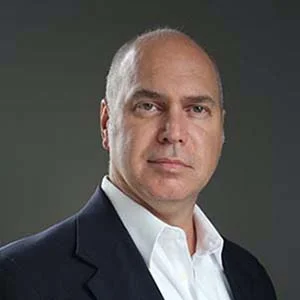Principles
I was in chilly Washington DC over the weekend, a city founded to support the principles of life, liberty, and the pursuit of happiness. At a time of heightened market and political uncertainty, it is always worth re-visiting the investment principles that we believe in, and why we believe them.
Global markets are highly efficient and incorporate information very quickly into prices that must generally be regarded as the fairest available. Markets know more than any of us alone does. For example, the market may bid up prices on “good” companies, and bid down prices on “bad”companies, and the result is a fair price for an asset regardless of its “goodness” or “badness.” Statistical evidence overwhelmingly supports these effects (in fact there is scant evidence to the contrary) not only in the United States, but in markets all over the world.
Attempts to outguess the market usually end in failure. Academic study after academic study shows that the odds of any person, even most professional investors, outperforming a broad well-constructed portfolio over a long period of time is quite small. Accordingly, New Capital does not try to outguess markets, but instead we work with market prices and concentrate on low costs and enhanced diversification.
Diversification is the only “free lunch” in investing. If you cannot expect to be paid extra to take a particular risk, then it makes no sense to take it. The most reliable academic research has shown that there are only a few risks that we can reasonably expect to get paid more to take: owning stocks over bonds; owning smaller companies over larger companies; owning value companies over growth companies; owning more profitable companies over less profitable companies.In bonds, we can expect to get paid more to own longer term bonds over shorter term, and to own lower credit bonds over higher credit bonds. Other than these things, there is no scientific statistical evidence whatsoever to argue to take a particular risk. For example, there is no evidence that companies that pay higher dividends may return more than companies that pay lower dividends, and so investing for dividends does not make sense, and New Capital therefore does not do it. Or, there is no evidence that companies that did well over the past ten years will do similarly in the next ten years, and so New Capital does not invest in the past decade’s winners, nor do we banish the past decade’s losers from portfolios. Instead, we invest in portfolios that are balanced and diversified across multiple factors that have been demonstrated to be reliable sources of returns.
Down markets represent the risk side of investments materializing, and without proper behavior, investors may offer up their ownership in securities to others without good reason. When you sell your investments, there is by definition someone else on the other side of the transaction who is purchasing your interest. You may assume that they are acting stupidly in offering to purchase your interests, but the safer assumption is that they too are reasonably informed and are engaging in an economic transaction that they believe to be in their own best interests. For any sale to be made, there must be a buyer as well.
More than anything, investing is about price. The price that we pay for an asset plays the most significant role in the return that we can expect from it over time. As prices go down, all other things equal, future returns go up. Prices tell us an enormous amount about future returns. Right now, prices are saying that over the extended term ahead stocks may well outperform bonds, but not by a lot; international stocks may well outperform domestic stocks; and value stocks may outperform growth stocks. But none of this, of course, is guaranteed, and the future is unknown. In the face of the unknown, we rely on principles to guide us.
2018 has been a difficult for year for investments, virtually all investments. One New York advisor I like and read calls 2018 "the year that no one made money." My own portfolio looks very similar to yours; I plan no changes presently, and my time and focus is on New Capital's clients. I wish you a very happy holiday season, and while we will all be leaving 2018 behind in a few weeks, New Capital will never leave behind investment principles that are rooted in science and which have stood the test of time.
Thank you for your trust.
Leonard Golub, CFA
Fiduciary Financial Advisor



